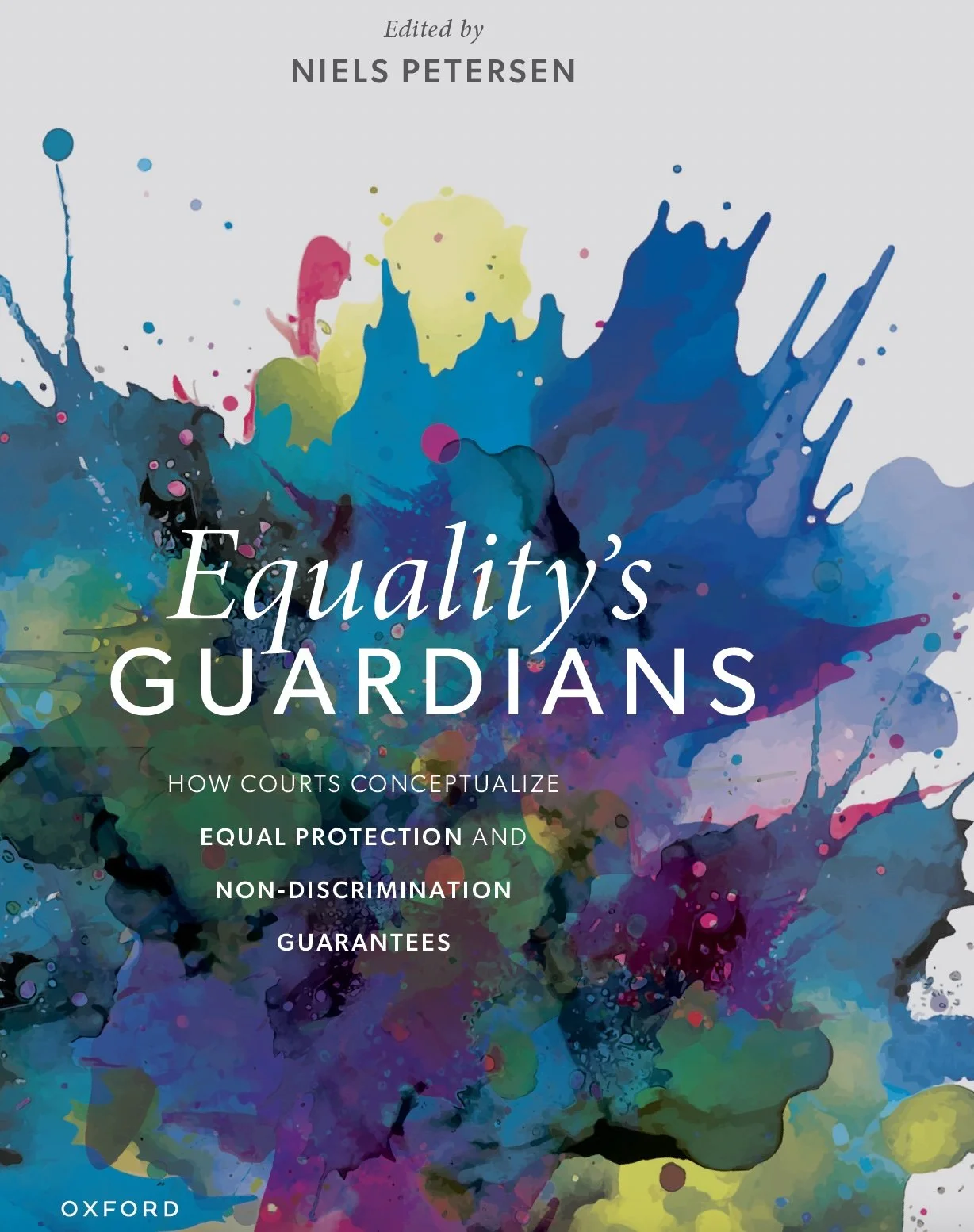News
Book Equality’s Guardians Published
The book Equality’s Guardians was recently published by Oxford University Press. The book publishes the results of the ERC Consolidator grant project “Correcting Equality through Law” (grant agreement no. 817652 under the Horizon 2020 programme of the EU). It maps the different approaches to equality in 18 different jurisdictions and identifies several factors that explain the divergence of doctrines established by different courts. The book was a true team effort as all PhD candidates that were part of the ERC research group contributed at least one chapter to the book.
The book is available open access here.
New Publication on the PSPP Decision of the German Federal Constitutional Court in the German Law Journal
My take on the PSPP decision of the German Federal Constitutional Court and the consequences for the relationship with the CJEU was recently published in the German Law Journal. Here is the abstract:
On May 5, 2020, the German Federal Constitutional Court issued the PSPP decision, sending shock waves through the European Union. This contribution analyzes the consequences of the PSPP decision for the future relationship between the German FCC and the CJEU and for European integration as a whole. The article consists of four parts. First, I will provide some context and model the interaction between domestic and international courts from a rational choice perspective. Second, I will recapitulate some core aspects of the relationship between the German Federal Constitutional Court and the CJEU in particular. I argue that the relationship between both courts had evolved into a strategic equilibrium in which it was costly not to respect the decision of the other party. The third section then looks for reasons why Karlsruhe nevertheless deviated from this equilibrium despite the significant costs involved. The fourth section, finally, considers the way ahead and analyzes what possible consequences for the future relationship between the Federal Constitutional Court and the CJEU.
The full text is available here.
New Blogpost: How to Strengthen Rule of Law Through Legal Education - Lessons from Pakistan
A contribution on how to strengthen the rule of law through legal education that I co-authored with Syed Imad-ud-Din Asad was published on the Peacelab Blog. Here’s the teaser:
A proper training of lawyers is key for rule of law promotion. The earlier it starts, the more receptive the students. Academic and cultural interaction between law students, academics and practitioners in developing and western countries should be part of this training. It helps both sides to improve understanding, analytical skills and context sensitivity.
ERC Consolidator Grant for Project Correcting Inequality through Law
My project on Correcting Inequality through Law: How Courts Conceptualize Equality in their Constitutional Jurisprudence will be supported by an ERC Consolidator Grant for the next five years. The project explores the meaning of equality. It analyses how apex courts conceptualize equality in constitutional and international human rights law. It will be based on a comparative study of the equality jurisprudence of 16 jurisdictions and has three aims. Firstly, it intends to create a comparative map of equality jurisprudence, i.e. to describe and categorize the constitutional jurisprudence on equality: Which doctrinal choices do courts make and how do these choices inform the conception of equality? Secondly, it seeks to explain the doctrinal choices of the analyzed courts: Which factors influence courts to arrive at particular conceptions of equality? Thirdly, it has a normative goal and examines whether courts are better suited to correct certain kinds of inequalities than other kinds of inequalities.
Review of Proportionality and Judicial Activism in I.CON
Iddo Porat published a review of my book on Proportionality and Judicial Activism in the International Journal of Constitutional Law
EJIL:Live Interview on The ICJ and the Judicial Politics of Identifying Customary International Law
Proportionality and Judicial Activism published
Cambridge University Press has published my book on Proportionality and Judicial Activism. The book addresses the question whether courts use the proportionality test as an instrument for judicial activism. It analyzes the fundamental rights jurisprudence of the apex courts of Canada, Germany, and South Africa.

